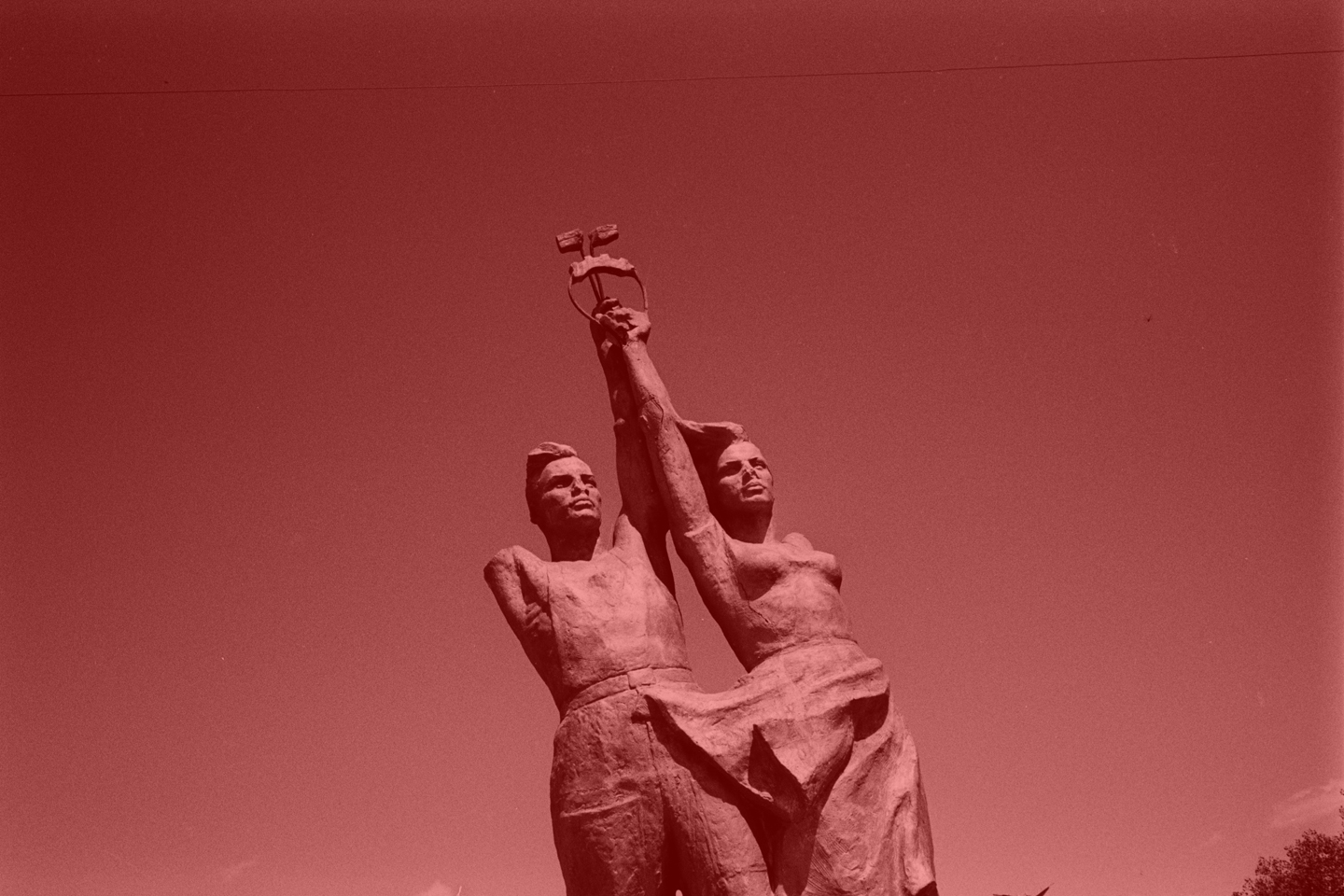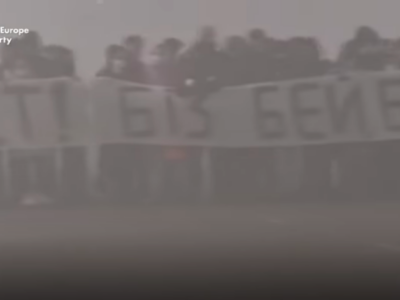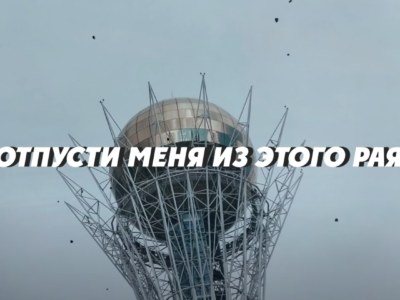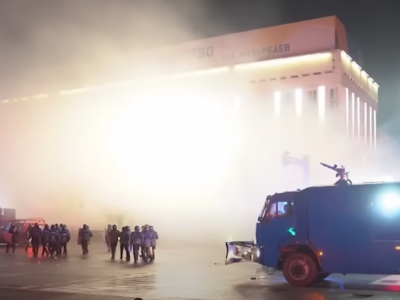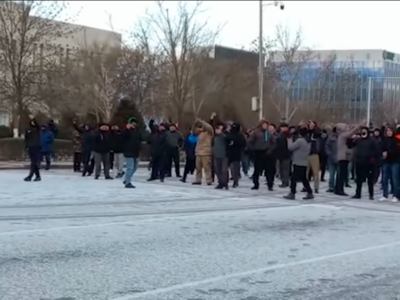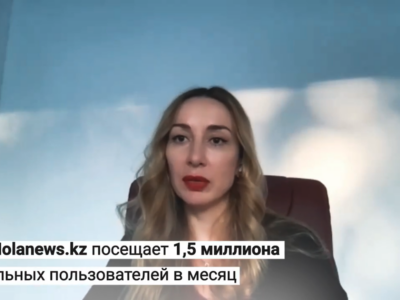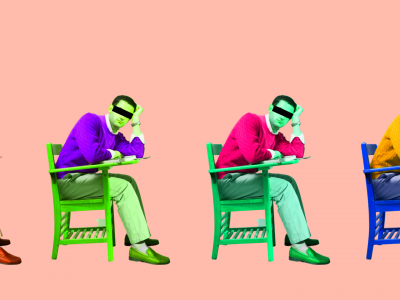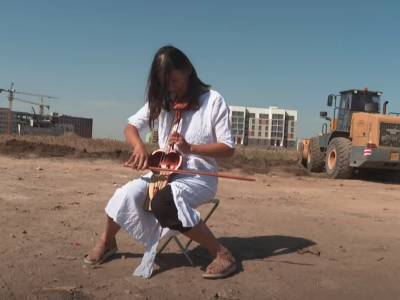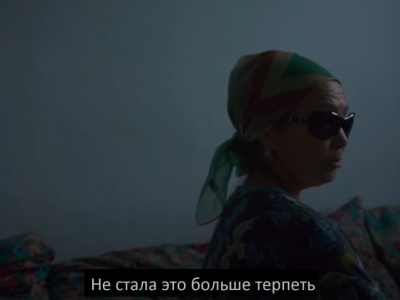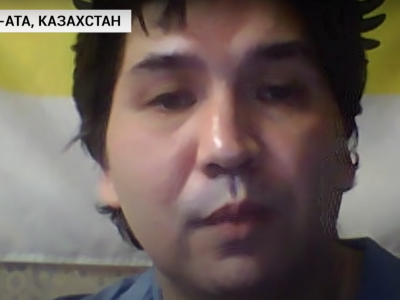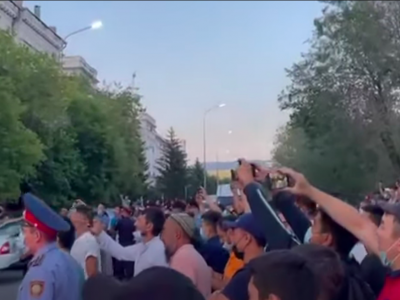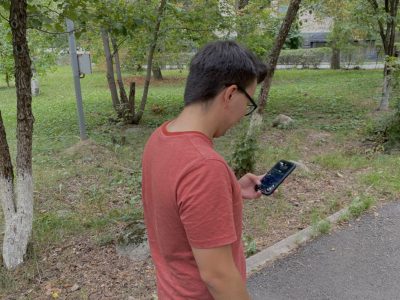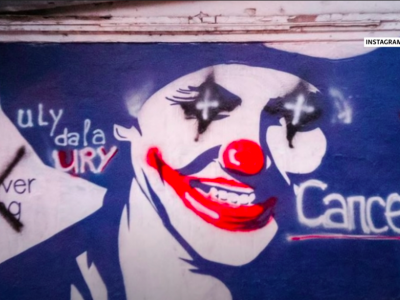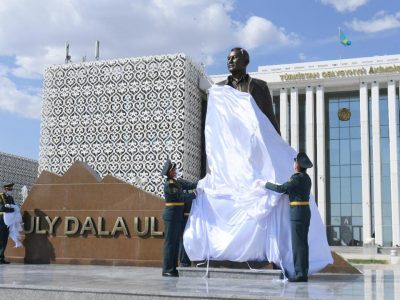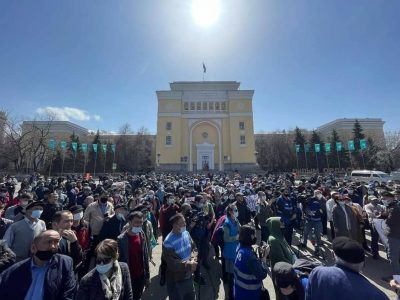When Kazakhstan gained independence in 1991, it inherited an extremely diverse nation, rich natural resources, and the potential of becoming a key player in Central Asia among the giants of Russia and China. It also inherited a system of political clientelism, a tradition of censorship and a gap between rural and urban lifestyles, as well as between average citizens and elites. Kazakhstan’s December 1986 Zheltoksan protests, one of the first significant public protests of the Soviet glasnost era, gave Kazakhstan’s political elite an early education in civil unrest, and a determination to resist similar, future developments as an independent state.
Three decades later, Kazakhstan has turned into a moderately wealthy, multiethnic country that maintains strong connections with Russia, Europe and China. It is also a hub for transit between China and Russia as well as Europe, a major exporter of natural gas and oil, and displays massive inequities in wealth, with significant elite corruption. But any transition to a democratic society never really began, as authoritarian rule has remained in place since Kazakhstan’s first election in 1991, in which Nursultan Nazarbayev appeared alone on the presidential ballot. Nazarbayev allowed or encouraged a cult of personality to develop, even after he stepped down as president in March 2019.
Oil and other extractive industries have financed the wealth of urban elites, and contributed to the opening of the country to foreign influence, with a significant presence not only of Russia and China, but India, Europe, North America, East Asia, and the Middle East. Kazakhstan’s populace has been exposed to postcolonial trends, a search for a national identity, a rediscovery of Muslim roots, and tolerance for greater diversity, yet old governance patterns have favored increased censorship, elimination of political opposition, discreditation of independent civil society and labor organizations. All of this has resulted into a yawning gap between cities and villages, Russian and Kazakh-speakers, and in general those close to power and the others.
The main reasons for the January 2022 violence are to be found in the lack of redistribution of resources, the unwillingness of authorities, local or national, to acknowledge genuine criticism, and the general corruption and arrogance of state structures and the elites they protect.
The results are tragic: state violence has caused civilian deaths, destruction of private business, and a likely diminishment of sovereignty, with Moscow stepping in as a guarantor of stability, a path likely to quell potential pluralistic political development.
Stories about Kazakhstan’s illusory stability has cracked
Another top-down concession is unlikely to satisfy the need for redistribution in Kazakhstan
Without a serious restructuring of the country's economy, Kazakhstan's leadership has picked another top-down measure to timidly combat inequality — the main reason for the popular protests in January
Were the Kazakhstani protests predictable?
Researchers found the root causes of popular dissatisfaction in Kazakhstan already in place in late 2019. Similar demands were at the core of the January protests that shook the country.
‘Our activism won't stop': The Oyan movement recounts the January protests in Kazakhstan
Accused of stirring up the protest by the president and political analysts, activists from Oyan, Qazaqstan! tell their version of the story of the protests and violence that shook Kazakhstan.
A 2019 Kazakh song about Nur-Sultan reads like news commentary in January 2022
A three-year old song describes in prophetic tones the violence that rocked Kazakhstan in January 2022 and speaks about the state of mind of many Kazakhs.
The myth of a stable Kazakhstan is shattered within a day as neighbours watch anxiously
In one day Kazakhstan dismissed its government, shut down the internet, and imposed a national curfew. People destroyed or took over key government buildings and even the airport in Almaty.
Fuel protests spill over into political demands across Kazakhstan
A regional dispute over higher fuel prices turned into a mass protest across Kazakhstan, where people demand more freedom, while the government sent special forces to disperse the crowds.
Uzbekistan and Kazakhstan tighten the screws on media freedom
The Uzbek government banned entry to a foreign journalist, while in Kazakhstan journalists and activists were targeted by state security services.
News site founders, editor resign under pressure from Kazakhstan's authorities
A sophisticated attack on Hola News's website kept it down for 10 days. The core team then abandoned the project, citing pressure from the authorities.
Deputy from Kazakhstan says ‘Squid Game’ mirrors everyday life in the country
A parliament member in Kazakhstan said that real life in the country is comparable to the extreme poverty and struggle to survive portrayed in Netflix's Squid Game.
Kazakhstan considers new legislation to hinder social media
New legislative amendments are poised to curtail the activity of social media companies in Kazakhstan. Ostensibly to protect children's rights, the restrictions could enhance government snooping.
Shooting in Kazakhstan leaves five dead after financial dispute over real estate
A court ordered the eviction of a Kazakhstan family that had defaulted on its bank loan. The head of the household opened fire against the authorities enforcing the eviction.
Chinese higher education programs attract increasing numbers of students from Kazakhstan
Education abroad and study exchanges have become instruments for the Chinese government to attract foreign students, especially from Kazakhstan. Does studying in China trigger support among Kazakhstani students?
Artists join activists in protest to save a water reservoir in Kazakhstan's capital
A group of contemporary artists and activists joined forces to protest the urban developments at the Malyi Taldykol water reservoir in Kazakhstan's capital city.
Kazakhstan news site receives threats after reigniting a child abuse story
Journalists in Kazakhstan are often under pressure for their work. A harrowing about child abuse is now the target of fresh threats against a news outlet.
Blogger gets prison sentence for branding Kazakhstan's language policies “russophobic”
According to Taichimbekov, the Kazakh state has been "sourcing Russian individuals who speak out in favor of banning Russian television, banning Russian language, excluding it from the Constitution."
New homophobic attacks in Kazakhstan rally support behind activists
Over the course of three months, LGBTQ+ activists were targeted three times by conservative mobs in various cities across Kazakhstan. An artist was bullied online for drawing same-sex kisses.
Devices of journalists, government officials in Kazakhstan hacked and spied on
Journalist Serikzhan Mauletbai found himself on a list of people targeted by Israeli-made spyware the government of Kazakhstan bought. The current president and prime minister are also on the list.
Street art protest in Kazakhstan becomes routine
Since Nazarbayev’s resignation in 2019, new protest movements in Kazakhstan have chosen street art as their preferred tactic. In this case, the target is a public utility hut in Almaty.
Kazakhstan celebrates its leader with two more statues
Nazarbayev's cult of personality in Kazakhstan continues two years after his resignation. For his birthday, the government built two statues, one in Turkistan and one in the capital Nur-Sultan.
How Sinophobia is instrumentalized in Kazakhstan as a form of oppositional politics
In Kazakhstan, Sinophobia is often a tool instrumentalized by protest organizers to mobilize people as a form of criticism of governmental policies
A hip-hop band plays exclusively on traditional instruments to forge a new Kazakhstani identity
An experimental musical project is trying to reverse the widespread disregard for rural traditions by taking contemporary music and performing it on traditional instruments.

